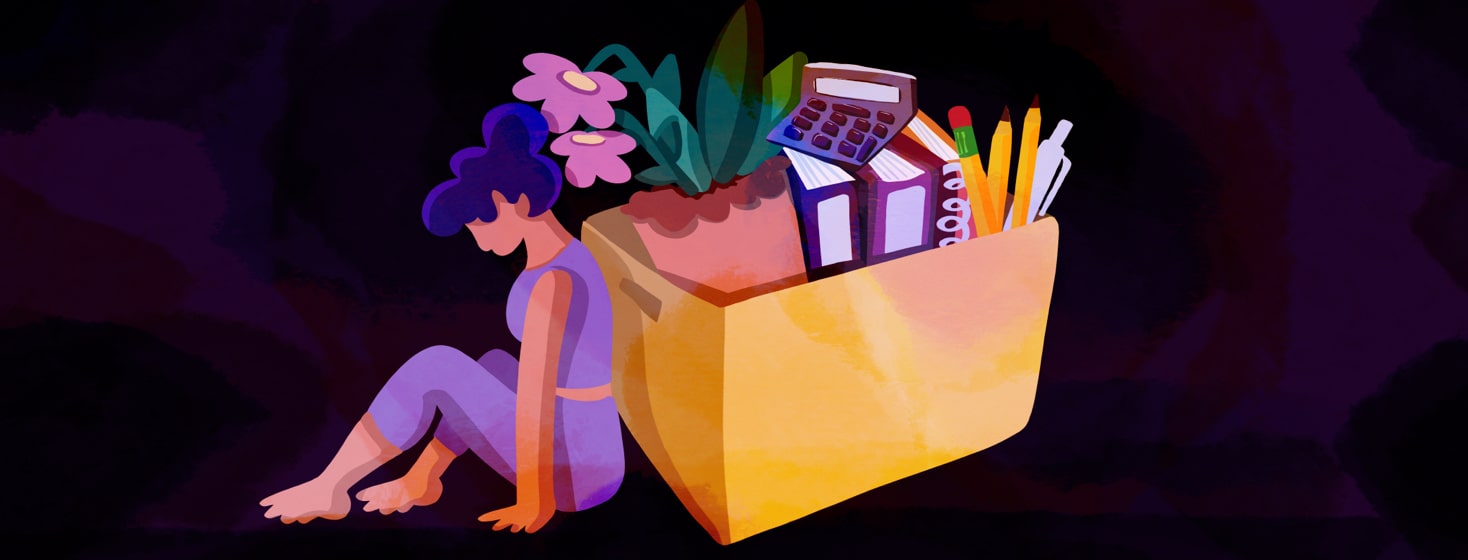Coping With Decision Paralysis
Decision paralysis is when someone has a big emotional reaction when making a decision. With decision paralysis, you might spend a long time thinking about your choices. But you still might be unable to come to a decision in the end.
Depression can change the way your brain works. Studies have shown that depression affects the decision-making process. It is estimated that about half the people who live with depression also have some difficulty making decisions. Along with depression, decision paralysis is also linked to other mental illnesses including anxiety disorders and attention-deficit/hyperactivity disorder (ADHD).1-4
How do I recognize decision paralysis?
Occasional indecisiveness might not be a cause for concern. But if you find yourself struggling to make decisions all the time, it might be a symptom of depression or another mental health condition. Here are some things that might help you identify if your indecisiveness is due to decision paralysis:4,5
- Taking a very long time to make a decision
- Not being able to make decisions
- Always feeling the need to get more information before making a decision
- Feeling overwhelmed and anxious during decision-making
- Feeling drained due to decision-making
How do I overcome decision paralysis?
Here are some tips that might help you deal with decision paralysis.6
Practice making small decisions quickly
Try this with small decisions that do not have big consequences. This can include deciding what to wear or what to eat at a restaurant.
Trust yourself when it comes to big decisions
From time to time, you will face big decisions that may have an impact on your life. This can be deciding between jobs or where to live. In these cases, it is perfectly fine to look carefully at all your options. Trust yourself that you can make the right decision with the information available. It might help to look back at a time when you had to make a big decision.
Simplify your choices
You might be experiencing decision paralysis because of the number of choices that are available to you. First, try to find the decisions that continuously need more effort on your part. Then see if it is possible to remove some of the choices. For example, if you always struggle to decide what to wear, try decreasing the number of items in your closet. Or if you are grocery shopping and having trouble deciding which tomato sauce to buy, use price or brand to eliminate most of the choices.
Give yourself a time limit
Many times, decision paralysis can lead to procrastination. You might end up missing a deadline or not doing a task because of being unable to make a decision. It might be helpful to give yourself a certain amount of time. At the end of this time period, pick the best option even if you feel the need to do more research. Do not leave the decision for another day.
When should I seek help for decision paralysis?
If you are experiencing indecisiveness all the time and it is making it hard to do everyday tasks, then it might be time to reach out to a healthcare provider. They can assess your symptoms and help figure out if your difficulty in making decisions is a symptom of depression or any other mental illness. Treating the root cause of indecisiveness should make the decision-making process easier. Depression can be treated using prescription drugs and therapy.5
Therapy can be a good way to figure out what causes decision paralysis and what to do. For example, cognitive behavioral therapy (CBT) is used to change negative thoughts and behaviors. It can provide tools to look into your thought process when it comes to making decisions. Then, you can come up with a plan for what to do when experiencing decision paralysis. The goal is to change the thinking about making decisions so that it becomes less burdensome.2
We make hundreds of small and big decisions every day. If you have decision paralysis, each decision requires extra effort, which can leave you drained. If this is making it hard to do everyday tasks, seek help from a healthcare professional. Therapy can be a great tool to learn ways to deal with decision paralysis.
